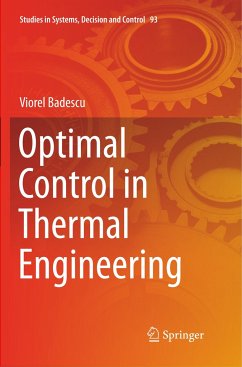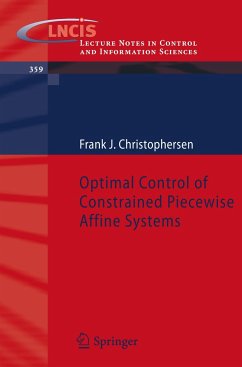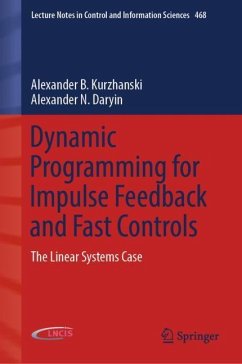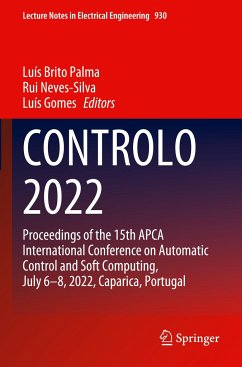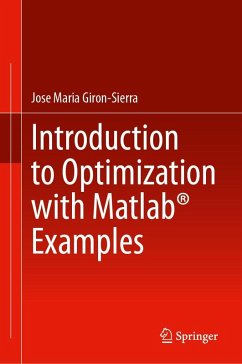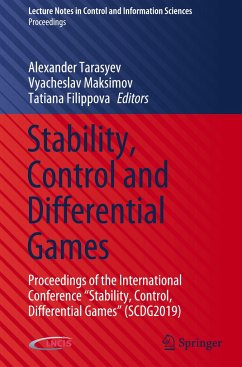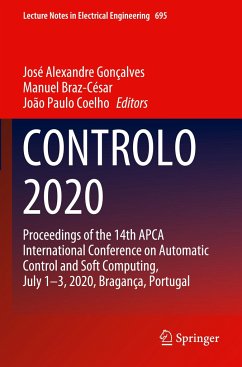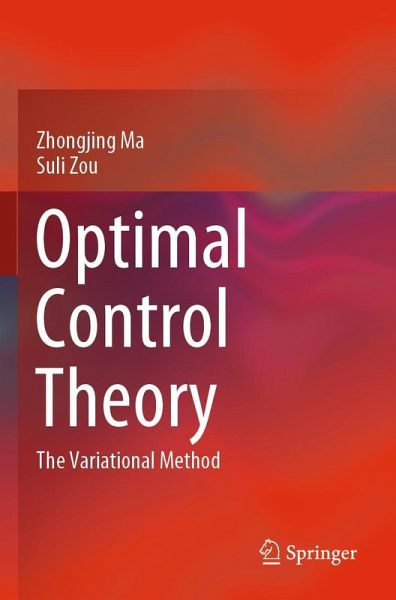
Optimal Control Theory
The Variational Method
Versandkostenfrei!
Versandfertig in 6-10 Tagen
61,99 €
inkl. MwSt.
Weitere Ausgaben:

PAYBACK Punkte
31 °P sammeln!
This book focuses on how to implement optimal control problems via the variational method. It studies how to implement the extrema of functional by applying the variational method and covers the extrema of functional with different boundary conditions, involving multiple functions and with certain constraints etc. It gives the necessary and sufficient condition for the (continuous-time) optimal control solution via the variational method, solves the optimal control problems with different boundary conditions, analyzes the linear quadratic regulator & tracking problems respectively in detail, a...
This book focuses on how to implement optimal control problems via the variational method. It studies how to implement the extrema of functional by applying the variational method and covers the extrema of functional with different boundary conditions, involving multiple functions and with certain constraints etc. It gives the necessary and sufficient condition for the (continuous-time) optimal control solution via the variational method, solves the optimal control problems with different boundary conditions, analyzes the linear quadratic regulator & tracking problems respectively in detail, and provides the solution of optimal control problems with state constraints by applying the Pontryagin's minimum principle which is developed based upon the calculus of variations. And the developed results are applied to implement several classes of popular optimal control problems and say minimum-time, minimum-fuel and minimum-energy problems and so on.
As another key branch of optimal control methods, it also presents how to solve the optimal control problems via dynamic programming and discusses the relationship between the variational method and dynamic programming for comparison.
Concerning the system involving individual agents, it is also worth to study how to implement the decentralized solution for the underlying optimal control problems in the framework of differential games. The equilibrium is implemented by applying both Pontryagin's minimum principle and dynamic programming.
The book also analyzes the discrete-time version for all the above materials as well since the discrete-time optimal control problems are very popular in many fields.
As another key branch of optimal control methods, it also presents how to solve the optimal control problems via dynamic programming and discusses the relationship between the variational method and dynamic programming for comparison.
Concerning the system involving individual agents, it is also worth to study how to implement the decentralized solution for the underlying optimal control problems in the framework of differential games. The equilibrium is implemented by applying both Pontryagin's minimum principle and dynamic programming.
The book also analyzes the discrete-time version for all the above materials as well since the discrete-time optimal control problems are very popular in many fields.




